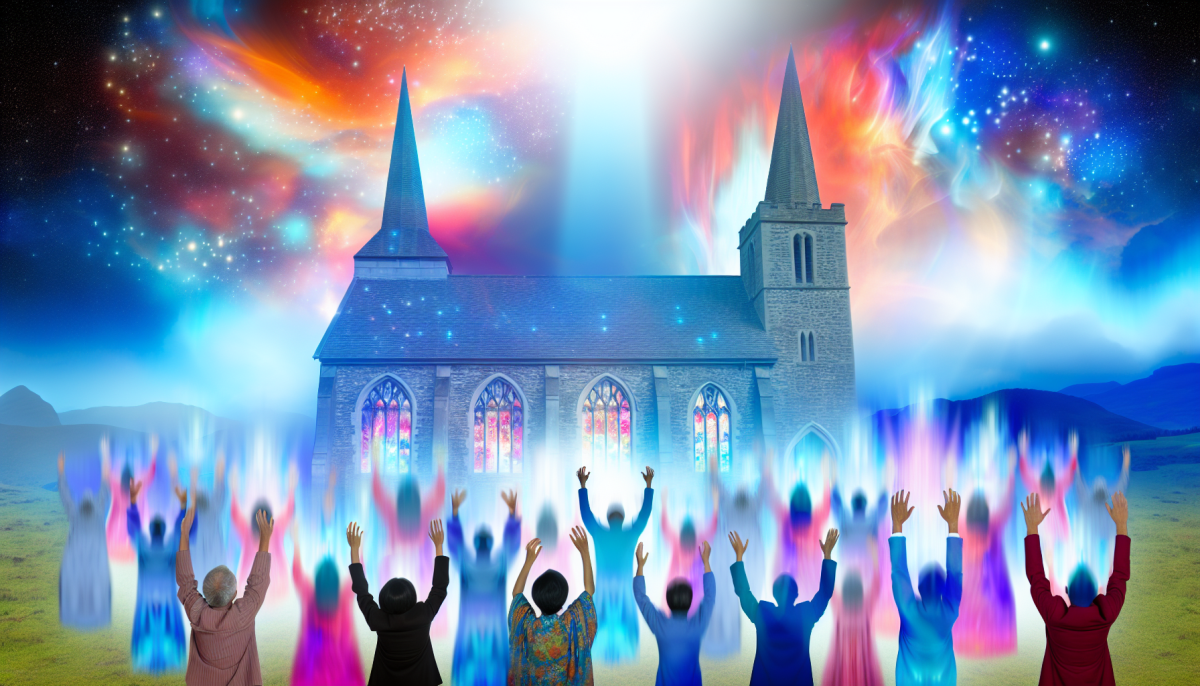Understanding the Rapture of the Church: A Biblical Perspective
The concept of the rapture is a significant event in Christian eschatology, capturing the imagination and faith of believers around the world. This article delves into the biblical descriptions of the rapture, what it entails for believers, and the subsequent events that those left behind will have to endure.
What is the Rapture?
The term "rapture" refers to an event in which Jesus Christ returns to Earth to gather His followers, both living and deceased, who will meet Him in the air. This event is described primarily in 1 Thessalonians 4:16-17, which states:
"For the Lord Himself will descend from heaven with a shout, with the voice of an archangel, and with the trumpet of God. And the dead in Christ will rise first. Then we who are alive and remain shall be caught up together with them in the clouds to meet the Lord in the air. And thus we shall always be with the Lord."
The term "caught up" translates from the Greek word "harpazo," meaning to snatch away or seize suddenly. While the word "rapture" does not appear in the Bible, this concept is derived from this translation.
What Believers Can Look Forward To
Eternal Unity with Christ
The primary hope for believers participating in the rapture is eternal unity with Christ. This transformative experience promises not only a physical reunion with the Lord but also an everlasting life in His presence, free from the sorrows and struggles of earthly life.
This unity with Christ is often described as a wedding feast in the Bible, symbolizing the intimate and eternal relationship between Jesus and His followers. Believers can look forward to being in the presence of God, experiencing His love, peace, and joy in ways beyond human comprehension. The rapture is seen as a moment of glorious transformation where believers are taken from this world into the next, being united with their Savior for all eternity. This hope serves as a source of comfort and encouragement for Christians facing difficulties and challenges in this present life. Just as Jesus promised to prepare a place for His followers, the rapture signifies the fulfillment of that promise when believers will be forever reunited with Him in perfect harmony.
Transformation and Reward
At the rapture, believers are said to receive transformed, glorified bodies. According to 1 Corinthians 15:52-53, "in a moment, in the twinkling of an eye, at the last trumpet... the dead will be raised incorruptible, and we shall be changed." This new existence is devoid of pain, suffering, and death, reflecting the fullness of eternal life.
A New Heaven and Earth
Revelation 21 describes a new heaven and a new earth, where God will dwell among His people. This new creation promises no more death, mourning, crying, or pain. For believers, the rapture is a gateway to this new and perfect existence.
The promise of the rapture and the new heaven and earth brings hope and comfort to believers, assuring them of a future free from suffering and filled with joy in the presence of God. It is seen as a transformational event that marks the culmination of God's redemptive plan for humanity. Believers eagerly anticipate this ultimate fulfillment of their faith, looking forward to an eternity spent in communion with their Creator in a perfect and eternal paradise.
The Fate of Those Left Behind
Tribulation and Trials
Following the rapture, those who are not taken will face a period known as the Tribulation. This time is characterized by unprecedented suffering and chaos, as outlined in the book of Revelation. The Tribulation includes natural disasters, wars, and the rise of the Antichrist, a global leader who will persecute those who turn to faith during this time.
Opportunity for Salvation
Despite the hardships, the Tribulation also represents a period of grace. Many people will come to faith during this time, often referred to as the "Tribulation Saints." These new believers will endure persecution for their faith but also hold the promise of redemption and salvation.
As the world plunges deeper into chaos and darkness during the Tribulation, a light of hope shines through for those who choose to accept salvation. The message of redemption will spread like wildfire across nations, reaching even the darkest corners with its promise of eternal life. Despite the overwhelming challenges and persecution faced by believers during this time, their unwavering faith serves as a beacon of hope in a world consumed by fear and despair. The Tribulation Saints stand firm in their convictions, knowing that their ultimate reward awaits them beyond this temporal existence.
The Second Coming of Christ
The culmination of the Tribulation is the Second Coming of Christ. Unlike the rapture, where Christ does not set foot on Earth, His second coming involves His return to Earth, where He will defeat the Antichrist and establish His millennial reign. This event marks the restoration of peace and justice and the beginning of a new era.
During this period, Satan will be bound and unable to deceive the nations. The world will experience a time of unprecedented peace and prosperity under the rule of Christ. Many believe that this millennial reign will last for a thousand years, as described in the book of Revelation. After this time, there will be a final judgment where all people will give an account of their lives before God. Those who have accepted Christ as their Savior will inherit eternal life, while those who rejected Him will face eternal separation from God. The end times are often viewed with fear and uncertainty, but for believers, they hold the promise of ultimate victory and everlasting joy in the presence of God.
The rapture of the church is a hopeful yet divisive concept within Christian theology. It represents not only the physical and spiritual deliverance of believers from Earth but also the commencement of a series of prophetic events leading to the ultimate restoration of the world. Understanding these biblical promises and warnings can inspire faith and perseverance among believers, while also offering a chance for reflection on one's spiritual state.







